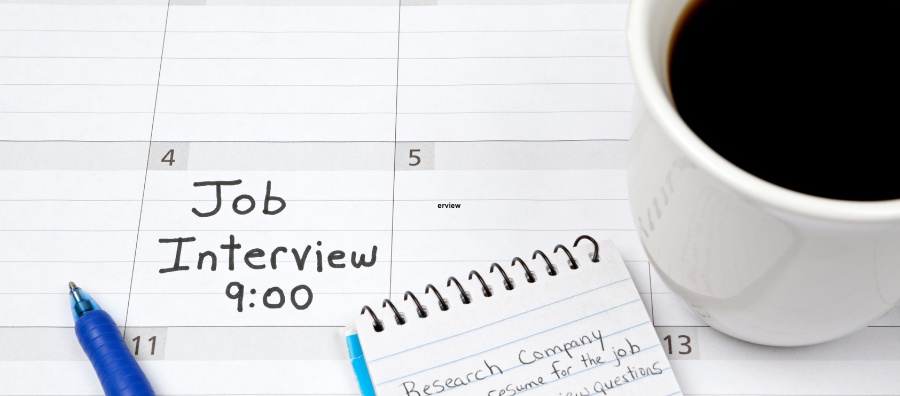Introduction

An interview has the age-old representation of being hideously scary and nerve-racking. The interviewer typically asks questions about yourself, your background, and how you think you would be suitable for the role. Your job is to sell yourself as a candidate and try to appeal to the role that you’re looking to start. The stigma around interviews is that they are held by disapproving individuals who don’t want you to get the job. Interestingly, the opposite is usually the case. Interviewers want you to be successful, and they want to fill the position. It might seem impossible to come across as personal yet not overshare, approachable without seeming like you are boasting. The confidence that is often needed to display during interviews might seem unnatural, as many of us aren’t used to talking about ourselves for so long. The goal is to leave the interviewer wanting to know more details about you without sharing too little. This balance might seem impossible, especially if you’re new to interviews, but this article is a handy guide on how to conduct yourself.
If you are new to the job market and have a few interviews coming up, or even if you want to improve your interview game, this guide is a foolproof advice article on how to present yourself during the interview. Preparation is key, and some tips on how to do research and where to look is listed below. Interviewers will be able to tell that you’re serious about the role and that you have done your homework. Whether you’re interviewing for your dream job, internship or college, we’ve got you covered. From what to wear to tactics on answering questions, this guide has been designed with you in mind and aimed at putting you at ease and giving you the confidence to succeed. You can achieve anything if you put your mind to it.
Types Of Interviews

We live in an age of modern technology and there are more interview options than simply face-to-face. Whether you’re worried about a Zoom call session or even a phone call, here are some specific things that you can expect with different types of interviews. Depending on how technologically minded you are, you are bound to have a natural preference of one of the below options. Unfortunately, we tend not to get much of a choice over the interview method. This is why our tips are below on what to expect for face-to-face, phone, and video interviews to hopefully eliminate the aspect of uncertainty.
Face-To-Face
The most traditional form of interview is an in-person session, which has its advantages and disadvantages. Some might say that this is the preferred method because, in some ways, it’s easier to know what to expect and is less intimidating for people who aren’t great at using technology. A benefit of going into the place where you might be working is that you know exactly where to go on your first day, removing any confusion and making it easier for you in the long run. Meeting someone in person is also interesting because it allows you to get a real feel for how things work and what type of person they are.
A great thing you can do to prepare for this kind of interview is to figure out how you are going to get there. For example, if you need to catch a bus, walk or drive. This will allow you to plan what time to leave without worrying about making it there on time. If you are particularly anxious about how long it will take you, you could time yourself while doing a test run from your house to the interview spot. This way, you’re covering all grounds and allowing for daily traffic. A well-known part of classic interviews is the handshake at the end. Having a firm handshake might be something to make you stand out from the crowd, but make sure your hands aren’t too sweaty. No one likes a wet handshake! More on handshakes and body language later.
Phone Interviews
Usually a straightforward phone call, these types of interviews tend to feel less personal, and although they are very time efficient for companies who might be conducting multiple interviews per day, are generally the least favored of the three methods. These are usually simple screening questions about candidates’ experience and qualifications, which can make phone interviews seem the most intimidating yet straightforward process. A great thing to do to prepare for a phone interview is to schedule a practice run with a friend or family member who is willing to pretend to play the role as interviewer. This would get you used to the style and make you feel more comfortable with the process. You could even ask the company or interviewer what number they will be calling you from so that you know to look out for it. Some people tend to ignore calls from unknown numbers, so make sure you know what you’re looking for.
Online Interview
This is usually in the form of a video call, which could be seen as more informal because you often get a peek inside the interviewers’ life, and it humanizes them in some ways. Being able to associate a name to a face is effective at allowing you to be open with the interviewer and really go to town on selling yourself. Video calls usually use Zoom, skype, or google meets and once you get the hang of how they work, you’ll be sailing through. Although these lack the personal touch of a handshake at the end, video interviews seem to be a compromise between phone interviews and face-to-face.
How To Prepare For an Interview

As we’ve covered, preparation is an essential part of a successful interview. That’s why we have some focused tips on things you can research and prepare. Preparing for your interview can ease some nerves you may be feeling by making you feel more confident and comfortable with the role.
Create and Update A LinkedIn Profile
Most companies will carry out a brief background check before your interview. That includes social media and LinkedIn. Make sure that your Facebook, Instagram and Twitter are PG and that you haven’t been posting anything inappropriate or against the company guidelines.
LinkedIn is a unique platform that employers use to see your education and employment history. You can build networks with colleagues or classmates and add a professional profile photo. If you don’t already have it, you might want to start a LinkedIn page and add your professional and educational background. You can also add details of any companies you have previously worked for and what your current employment position is. Many people tend to forget to update it, so make yourself stand out with an up-to-date profile, complete with a recent picture of you showing your face and shoulder- profile. Millions of professionals and students are already using LinkedIn, and it is a great way to connect with employers and colleagues alike.
Research The Company You Are Applying For Well
Learn as much as you can about the job, company, competitors and the type of customers they deal with. You need to show that you understand how the company and the field in general works. If you can find them on LinkedIn, a handy way to start researching could be looking at their profile and doing a quick internet search for customer reviews, or if they have made any newspaper headlines in the past. This would also help you explore the types of challenges that the business face, from more regular daily ones to bigger issues. You might also want to look into recent projects they have completed and what they are currently working on. This will allow you to give specific answers to questions, complete with examples from within the company.
An important thing to research is the company’s values and ethics. Be sure that they look after employees of all backgrounds and that you are not interviewing for something that you do not believe in. Likewise, it’s important that the company supports their colleagues and that they do not tolerate discrimination or racial abuse of any kind. Ethics and values within a company are crucial and being respectful to employees is not only important to individuals, but it is a legal requirement in most countries. Another thing you could research is if any workers’ unions exist or how reliable the HR department is.
Familiarise Yourself With The Job Description Well
Make sure that you know as much about the role you are interviewing for, including the salary and benefits. Go over the job description and application form again, including any further information that you might have been sent prior to the interview. Pay close attention to the skills and qualifications that are essential and desirable, because you can incorporate some of these into answers during the interview to show how well of a fit you would be. If you can find the information, you could even go as far as familiarizing yourself with the interviewer. Some companies use an interview panel consisting of several people. A great start is to look into their LinkedIn pages to see what their professional interests and career goals are. You could also see what kind of reputation they have within the firm.
Prepare A Couple Of Relevant Questions About The Role
Interviewers love when their candidates return with questions about the role and the company. Try to write down some questions that you want to ask or find out more about. These can be as specific or general as you like, depending largely on what you find out during your research and the interview. A lot of interviews are aimed at answering any questions before they come up, so you could try asking a specific question or even something personal like the interviewer’s career pathway.
Most people tend to stay silent when the time comes for them to ask questions. Make yourself stand out and be bold, try asking about additional training opportunities within the company, or what they personally enjoy about their job. People love to fuel their ego by talking about themselves, especially if most of the interview has been filled with things about you.
Some examples of questions include:
- “How would my performance be measured in this company? How often?”
- “What are the challenges you’re currently facing in your role?”
- “Why is this position open?”
- “Can you tell me more about the team that I would be working with?”
- “What would a typical day look like in this role?”
Things To Take On Your Interview
Try to avoid showing up to an interview empty-handed. Show that you’ve put extra effort into preparing by covering all grounds.
- Pen & Notebook- this makes you seem sophisticated and is also practical. Most interviewers like it when you take notes so that you don’t plan on losing the information that they are telling you.
- A written version of the prepared questions for your interviewers- you can even write answers onto this
- Your CV and qualifications- even if they don’t ask for it, it’s great to show that you’re prepared and have copies of any qualifications ready
- A Form Of ID- this can be your driver’s license or passport, any proof of address is also handy to have
- Water bottle- if you’re stuck for words and want some thinking time, a tactical tip is to take a sip of water. If you tend to sweat when you’re stressed, it’s also useful to stay hydrated
What To Wear On Your Interview & Why It Matters
Depending on how your research goes, you should try and fit what you’re wearing to the working environment. As a general rule, it’s always best to go with a smart casual dress code. Usually, some black trousers with a shirt or blouse and some nice shoes will cover all bases. But some roles will require you to dress more formally or even dress down. For example, if you’re going to interview for a role as an accountant, a lot of their work includes client-based negotiations and presenting themselves professionally, so a more formal approach to the uniform would be expected. As a rule of thumb, let smart-casual be the ballpark and only dress down if a company specifically states to. Whatever you choose to wear, make sure that it is cleanly pressed and that your shoes are clean and polished.
Although more and more companies are actively encouraging casual wear, a general rule is that it’s better to over-dress than under-dress. If your interview is online, make sure that your top half is presentable and that your backdrop is tidy. You don’t want to make the wrong impression and should present yourself and your home as tidy and put together. Remove any clutter that might be in the line of view from the webcam and try to make the space presentable.
Tips For a Successful Interview

These are our top tips to remember when getting yourself ready for your interview. Whether you want to focus on how you talk and present yourself, or if you think your manners and patience need to be improved, these are easy to follow guidelines that can improve your success rate and enhance your communication skills.
Always Be On Time
If you’ve already checked your route and where to go, you’re one step ahead. A great tip is to be five to ten minutes early. Potential employers appreciate punctuality, and it makes a great first impression if you are on time. Allow some time for traffic and any other potential hazards that might delay you. Having an extra ten minutes once you are in the building is great to use the bathroom and check your appearance, tuck in any shirts or layers and fix your hair. Not to mention, getting control of your nerves beforehand.
Listen Carefully & Avoid Interrupting
Make sure that you’re being considerate and listen to the details of each question. Even if it takes a few moments for you to think of an articulate answer. A great way to prepare answers is to research common interview questions and draft some answers which you can memorize. Treat everyone you meet with respect because you don’t know what role they can play in your potential job. It can be easy to interrupt or talk too fast before they finish speaking. Try to calm your nerves by taking a few deep breaths before you go in and be patient. Put your phone away and on silent, show that you are really engaged and listening.
Some common examples of questions you may be asked:
- Why should we hire you?
- What are your greatest strengths?
- What type of work environment do you prefer?
- What are you passionate about?
With whatever questions they may ask you during the interview, always take it as an opportunity to present yourself in a positive light, and show that you meet their requirements. Don’t be intimidated by any questions or tone that they might have. The interviewer is just trying to see what kind of person you are and what makes you tick.
Be Polite
Be aware of everyone you encounter, from security staff in the parking lot to secretaries at the front desk. All of these will influence how your interview goes, so start as you mean to go on by giving off a confident, courteous, and warm manner. This one might seem obvious, but some people tend to appear pretty closed-off in stressful situations or times when they are unsure of the environment. Meeting new people can be intimidating and take lots of deep breaths and try to remember why you want the job.
Body Language
Be mindful of your body language as soon as you get through the door. Even if you need to wait in a waiting room or hallway before the interview, it’s a good idea to keep this in mind, coworkers and other staff cross your path and form their own judgments on you. These can always be passed back to the interviewer if they want a second opinion from other staff, so keep this in mind from the beginning till you leave the building.
It’s always good to greet your interviewer with a handshake before the interview commences, this is a good idea as it breaks down the physical distance between you and the other person, remember it is not a competition of who has the strongest grasp, just a firm grip will do. Sitting up straight and not slouching is a must, maintaining professionalism through your conversation but also your posture will keep you in good stead. Be careful not to seem too rigid, just make sure you sit up straight. Eye contact is another thing to consider, sometimes this can be difficult for some people, but try as often as possible to maintain eye contact with the interviewer, this will give the impression you are taking in what they are saying and maintaining interest. If you struggle with maintaining eye contact, wherever possible, give physical or verbal nods to the interviewer to show that you are still listening to them and taking on what they are saying. And most importantly, smile. If someone is looking to employ an individual, they want to make sure you are someone they can comfortably work alongside. By presenting yourself as a happy, positive person, will only leave a better impression on your possible employer or coworker.
Clarify Why You Want This Job
Make sure that you sell yourself, talk about what opportunities this job could bring you, and how your career as a whole can grow because of it. Show that you are passionate about the role and bring some positive energy to the room. Be honest and talk about yourself in a way that you can tie back to the job requirements. Try to provide examples of problem-solving and quick thinking. Be specific when talking about how you found the job, what about the description that stood out to you and made you apply.
Keep Your Answers Short And To The Point
Interviews are often on a schedule, and you don’t want to cut into someone else’s time slot by talking around a subject. Avoid using filler words or sentences when you are thinking of an eloquent answer. Honesty is appreciated here, and if you have the confidence to say that you need a second to think, it will make you appear aware of time limits and concise. When answering, try not to speak too quickly. This is a normal nervous response and even if it feels like you are talking too slowly to compensate, chances are you sound perfectly normal and fluent.
Don’t Speak Negatively About Current And Former Employers or Colleagues
Another thing to keep in mind when discussing your previous experience with a possible employer is to leave any judgments about your previous employers or colleagues at the door. Firstly this helps maintain a positive conversation, giving off a positive attitude is a trait a lot of employers seek to find in people. Secondly, if you do not, this will give the impression that you are a complainer. We have all in the past worked alongside someone who seems to do very little but express how irritated they are at certain aspects of the job, so make sure you do not give that impression to your next employer. Your interviewer is trying to find someone who can fit into the working environment they have created. Expressing your positivity, rather than complaints, will show them that you’re a driven, constructive person who will work to amend issues rather than spend time complaining about them.
Find Common Ground
If you can find a way to get to know your interviewer on a deeper level than their work-life, then they will be more likely to remember you and this may help you get on their ‘good list’. Finding something you have in common with a person is never a bad idea, it’s how we build relationships and form friendships. This is usually possible when they ask you about your life outside of work and what you like to do to fill your free time. Do not be afraid to discuss your passions and any interesting hobbies, they just might share the same ones. And this is a great route to deeper conversation and that you are presenting yourself on a more personable level. This will make you approachable and friendly, as well as introducing some of your personality into the conversation. Common interests are a great way to introduce yourself and show that this job won’t be the only thing occupying your mind.
Project Enthusiasm
Bringing a positive attitude to the interview will do wonders for first impressions. Try to show that you are keen to start this position and tell the interviewer what parts of the job particularly excite you. Even if it’s long-term career prospects, people appreciate someone with goals and aspirations. Focus on the company’s opportunities for growth and how you could be a valuable part of it. Bring in some personality without seeming too big-headed. A great way of selling yourself is to talk about what you’ve achieved through projects and what it taught you. Interviewers can then ask you for more detail if they feel like it’s something relevant that they want you to add to.
Summary

What are the next steps? After your interview, there is usually a waiting period to hear back about the job. It’s not the end of the world if you are rejected. Ask the company for some feedback on your interview and why you were unsuccessful. You can then take this to your next interview and use this as an opportunity for growth and improvement. Your interviewer might even get back to you and offer you the job. If this is the case, you will be all set with a plethora of people skills that prepared you for the interview and beyond. Be sure to check your salary, payment details, and whether you need to do anything to prepare. You could use this time interval to discuss the role with your family and friends about how suitable they might think the job is for you.
To summarise, an interview is a great opportunity to work on your people skills and exercise your ability to charm and communicate effectively. Ask questions, don’t be afraid to show them that you’ve done your research. The research stage is essential when preparing because you can make your questions specific and bring your answers back to the job role and requirements. With positive body language, confidence, and punctuality, an interviewer is sure to be impressed. You can even try and tailor your answers so that they show you in a good light and demonstrate your willingness to be part of a team as well as motivation. Make sure to show enthusiasm and confidence using verbal and non-verbal methods of communication, and present yourself professionally. Work on your online profile and create a career that you can grow.
Remember, interviewers are simply trying to identify if you are someone that they can work alongside. They are not trying to catch you off guard, or put you in tricky situations. They are there to choose the right person for the role, and by following these recommendations, you’ll have put your best foot forward. No matter how intimidating they may seem, they are human too and are likely to encourage you if you seem nervous. Don’t worry if you don’t think it goes well because chances are, the interviewer wants you to succeed and is very forgiving. An interview is simply a conversational exchange, and in most cases more of a casual chat. Be sure to keep your nerves at bay and find common ground to humanize them a little. Good luck in your interview, with these tips you’re going to smash it!